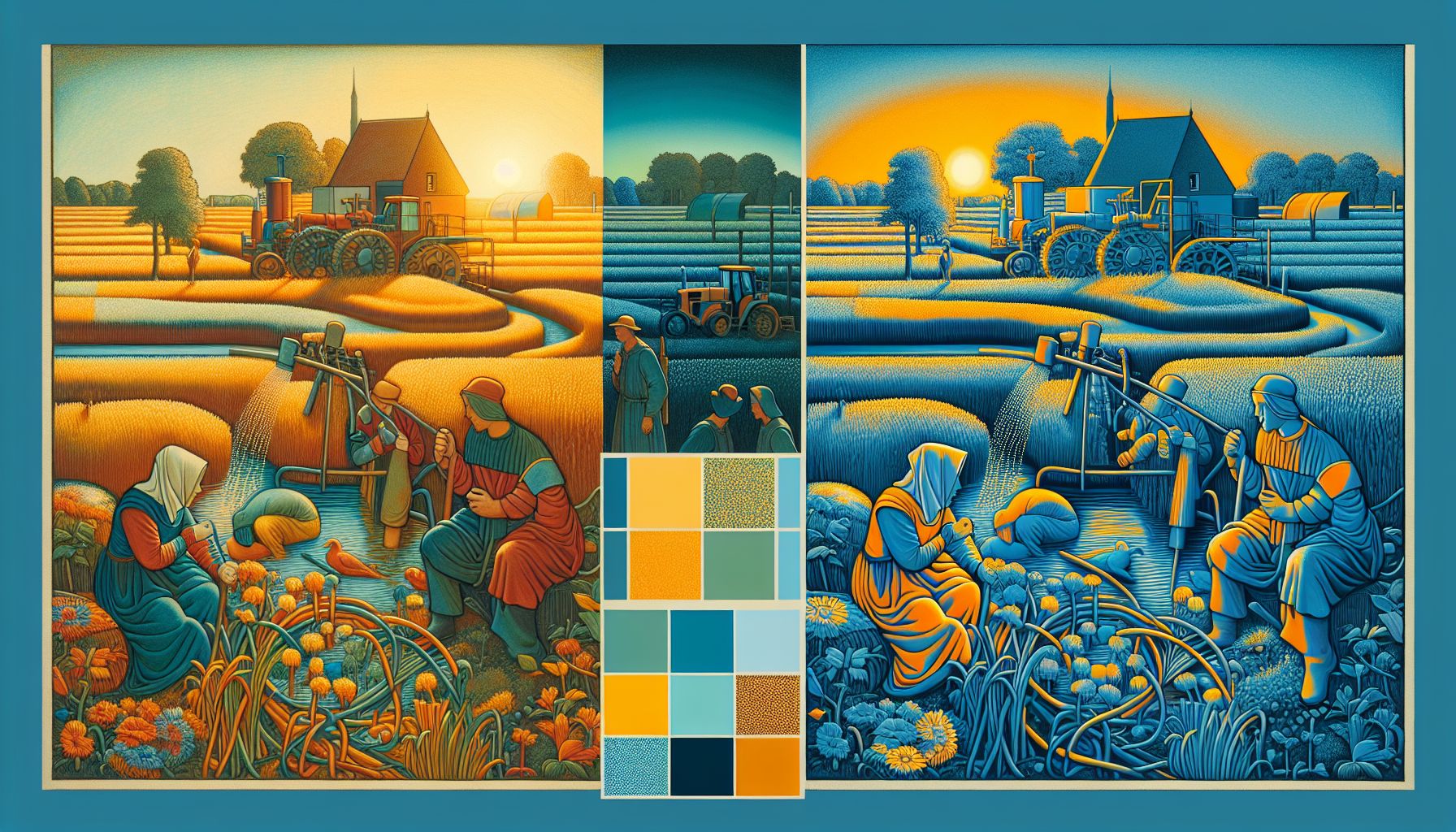Dutch Farmers to Benefit from New Sustainable Water Management Subsidy

Netherlands, Wednesday, 15 January 2025.
Beginning February 3, 2025, Dutch farmers will access subsidies promoting sustainable water management, addressing climate change impacts like droughts and flooding to enhance crop resilience.
Financial Support for Climate Adaptation
The Regional Partnership for Water and Soil subsidy scheme will make €295,000 available, with €220,000 allocated for water quality improvements and €75,000 for climate measures [1]. This initiative, overseen by the Dutch water authority (waterschap), aims to help farmers adapt to increasingly challenging weather patterns that affect soil conditions and crop yields [1]. Hoogheemraad Gijs Stigter emphasizes the importance of supporting farmers: ‘Through collaborative efforts in sustainable water management, we can better address the consequences of climate change’ [1].
Comprehensive Water Management Measures
The subsidy program supports various sustainable water management practices [1]. Farmers can implement measures to improve water quality on their land, retain rainwater to prevent soil dehydration, and develop systems to manage heavy rainfall events [1]. These initiatives align with the Netherlands’ broader water management expertise, as coordinated through organizations like the Netherlands Water Partnership (NWP), which has been facilitating water management solutions since 1999 [7].
Expert Support and Application Process
To ensure effective implementation, the water authority has appointed dedicated ‘water brokers’ who will assist farmers in developing agricultural water plans and navigating the application process [1]. Applications will be accepted from February 3 through November 30, 2025, with subsidies awarded on a first-come, first-served basis [1]. This approach supports the Dutch government’s commitment to addressing climate challenges through innovative water management solutions [2][3].
Alignment with National Climate Goals
This subsidy program represents part of the Netherlands’ broader commitment to climate adaptation and sustainable agriculture [2]. It aligns with Rijkswaterstaat’s goal to achieve climate neutrality by 2030 [2] and complements the country’s extensive experience in water management [7]. The initiative demonstrates the Dutch approach to combining agricultural productivity with environmental stewardship, supported by the collaboration between government agencies, water authorities, and farming communities [1][2].

